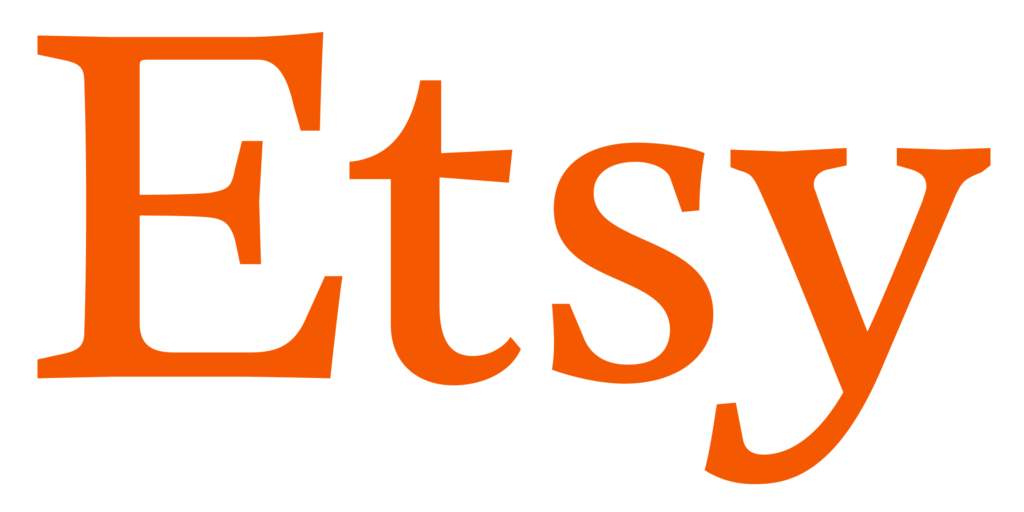Faced with the challenge of choosing the most suitable e-commerce platform for your business, it is essential to compare the main solutions available on the market. Shopify, Etsy, and Squarespace are three major players in the sector, each offering advantages and disadvantages depending on your needs and goals.
We will examine these platforms in detail, highlighting their strengths and weaknesses, to help you make an informed decision and propel your online business to success.
Shopify vs Etsy vs Squarespace: What are the main differences?
It is important to understand the main differences between these three e-commerce platforms before making a decision.

Shopify is a dedicated e-commerce platform, offering great flexibility and powerful features to create and manage an online store. It offers a wide range of themes and apps to customize your site and extend its functionality.

Etsy is an online marketplace focused on handmade products, vintage items, and creative supplies. It provides instant visibility for your store to a community of customers passionate about craftsmanship and unique products.

Squarespace is a website creation platform that also offers e-commerce features. It is particularly appreciated for its elegant design templates and ease of use, but it can be limited in terms of advanced e-commerce features.
How to choose between Shopify, Etsy, and Squarespace based on your needs?
To choose the platform best suited to your project, it is essential to evaluate your specific goals and needs. Here are some questions to ask yourself, along with additional information to help you make an informed decision:
What is your budget?

- Shopify: Subscriptions start at $29/month (Basic Shopify), with plans up to $299/month (Advanced Shopify). Transaction fees are applied if you do not use Shopify Payments (from 0.5% to 2% depending on the plan). Additionally, some apps may incur additional costs.
- Etsy: No fixed monthly fees. Etsy charges $0.20 per item listed and takes a 5% commission on each sale. Additional fees of 3% + $0.25 apply for payment processing.
- Squarespace: E-commerce plans start at $27/month (Basic Commerce) and go up to $49/month (Advanced Commerce), with no additional transaction fees.
What level of customization do you want for your site?

- Shopify: Offers great flexibility with over 110 themes (free and paid) and over 8,000 apps to customize and extend your store’s features.
- Etsy: Limited customization, mainly for banners, logos, and product images. The store structure remains similar for all sellers.
- Squarespace: Offers over 100 elegant design templates and allows style adjustments through its visual editor, but offers fewer options and integrations than Shopify.
What type of products do you sell?

- Shopify: Suitable for all types of products, physical or digital, and allows easy management of inventory, shipping, and taxes.
- Etsy: Specifically designed for handmade, vintage (over 20 years old), and creative supplies products. Not suitable for mass-produced products or items that do not meet these criteria.
- Squarespace: Can accommodate a variety of products, but its e-commerce features may be more limited than Shopify’s for complex stores or those requiring advanced features.
What are your technical skills?

- Shopify: The platform is user-friendly, but some advanced features or customizations may require technical skills or the help of a developer.
- Etsy: Very easy to use, requires no particular technical skills to create and manage a store.
- Squarespace: Easy to use thanks to its visual editor and pre-built templates, but some limitations may exist in terms of advanced e-commerce features.
By considering these factors, you can better determine which platform best suits your e-commerce project. It’s also important to take into account other aspects, such as customer service, shipping options, and integrations with other marketing and management tools.
What are the pros and cons of Shopify?
Shopify is one of the most popular e-commerce platforms, known for its flexibility and numerous features. However, before embarking on the Shopify adventure, it’s essential to consider the pros and cons of this solution.
Pros and Cons of Shopify
Pros
- High customization and many integrations
- Suitable for all types of products
- 24/7 and multilingual customer support
- Easy management of inventory and shipping
Cons
- Variable costs (subscriptions, transaction fees, paid apps)
- May require technical skills for advanced customizations
Our rating on Shopify
Discover our evaluation of Shopify. It is based on all the parameters we have analyzed throughout the article.

4.6/5
In summary, Shopify offers a high level of customization, strong customer support, and simplified inventory and shipping management. However, costs can vary, and some advanced customizations require technical skills.
Etsy: Why is this platform ideal for creators and artisans?
Etsy is an online marketplace that showcases handmade and vintage products. This platform is particularly popular with creators and artisans worldwide.
Pros and Cons of Etsy
Pros
- Instant visibility to a targeted clientele
- Low entry cost and no fixed monthly fees
- Ease of use and quick setup
- Supportive community of artisans and creators
Cons
- Limited to handmade, vintage, and creative supplies products
- Increased competition among sellers on the platform
- 5% commission on each sale
Our rating on Etsy
Discover our evaluation of Etsy. It is based on all the parameters we have analyzed throughout the article.

4/5
Etsy offers immediate visibility, low entry cost, and a supportive community, but it is limited to specific products and involves increased competition among sellers.
Squarespace: A one-stop solution for versatile e-commerce businesses?
Squarespace is a platform known for its elegant design templates and user-friendly interface. However, is it the best option for your e-commerce business?
Pros and Cons of Squarespace
Pros
- Elegant and professional design templates
- All-inclusive subscriptions, with no additional fees
- Intuitive visual editor
- Good SEO performance
Cons
- More limited e-commerce features than Shopify
- Fewer apps and integrations available
- Customer support available in English only
Our rating on Squarespace
Discover our evaluation of Squarespace. It is based on all the parameters we have analyzed throughout the article.

3.5/5
Squarespace offers elegant design templates, all-inclusive subscriptions, and an intuitive interface, making it an attractive solution for versatile e-commerce businesses. However, its e-commerce features and integrations are more limited than Shopify’s, and its customer support is available only in English.
Summary table: Comparison of Shopify, Etsy, and Squarespace
| Criteria | Shopify | Etsy | Squarespace |
|---|---|---|---|
| Personalization | 5 | 3 | 4 |
| Costs | 3 | 5 | 4 |
| Type of product | 5 | 3 | 4 |
| Customer support | 5 | 3 | 3 |
| Expeditions | 5 | 4 | 3 |
| Integration | 5 | 2 | 3 |
| Overall note | 4.6 | 4 | 3.5 |
Now that we’ve compared these platforms, here’s a summary of who might be interested in each of them:
- Shopify is ideal for entrepreneurs and growing businesses, offering a robust and customizable e-commerce solution. Users benefit from a wide range of integrations and excellent customer support to grow their online business.
- Etsy, perfect for creators and artisans, focuses on handmade, vintage, and creative supplies products. The platform offers instant visibility, low entry cost, and a supportive community for those looking for a simple and accessible solution.
- Suitable for versatile e-commerce businesses, Squarespace provides an all-in-one solution with elegant design templates and an intuitive interface. Despite having less advanced e-commerce features than Shopify, Squarespace is an excellent choice for small businesses and entrepreneurs who prioritize aesthetics and simplicity.
Conclusion
Choosing the best e-commerce platform depends on your needs, objectives, and budget. Shopify is suitable for growing businesses, Etsy is ideal for creators and artisans, and Squarespace attracts versatile e-merchants. Carefully weigh the pros and cons of each option to find the solution that perfectly matches your online business.
It’s important to conduct thorough research before making a decision regarding which e-commerce platform to use. Although Shopify, Etsy, and Squarespace are excellent options, there are other platforms on the market that may be better suited to your specific needs.
Take the time to evaluate each solution based on your requirements and don’t hesitate to explore other alternatives to ensure you make the best choice for your online business.
FAQ
Is it better to have an Etsy or Shopify store?
For creators and artisans, Etsy is preferable, while Shopify is better suited for growing businesses.
Which solution should I choose for digital products?
For digital products, Shopify is generally the best solution.
Is Etsy more expensive than Shopify?
Etsy is less expensive than Shopify, especially for smaller sellers.
Should I open both an Etsy and Shopify store?
Opening both an Etsy and Shopify store can be beneficial for diversifying your sales channels, maximizing visibility, and reaching different customer segments. This allows you to take advantage of the unique benefits of each platform while spreading the risks associated with relying on a single solution.
